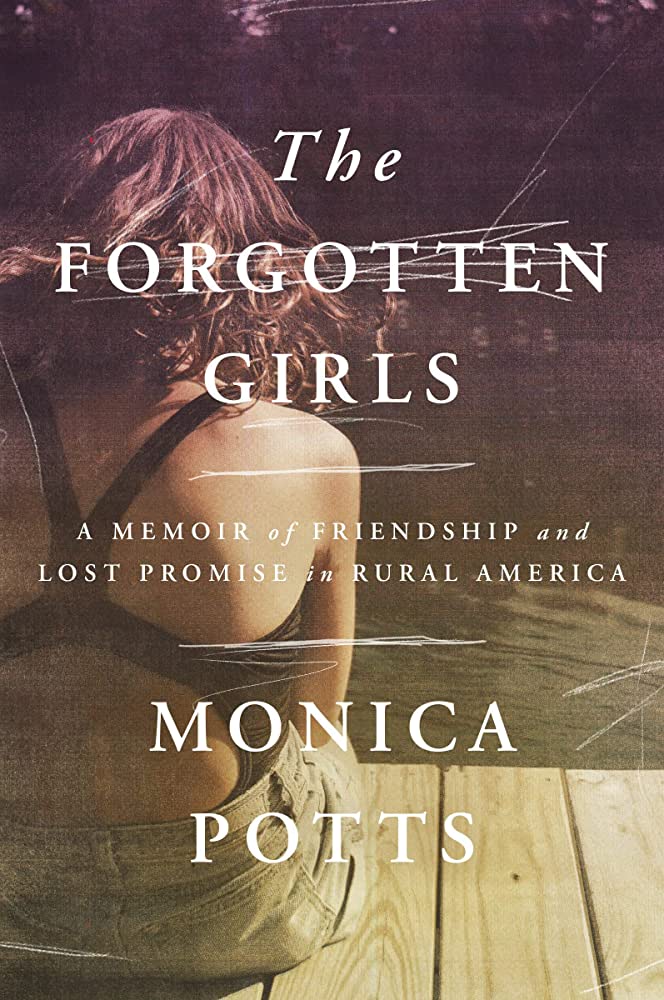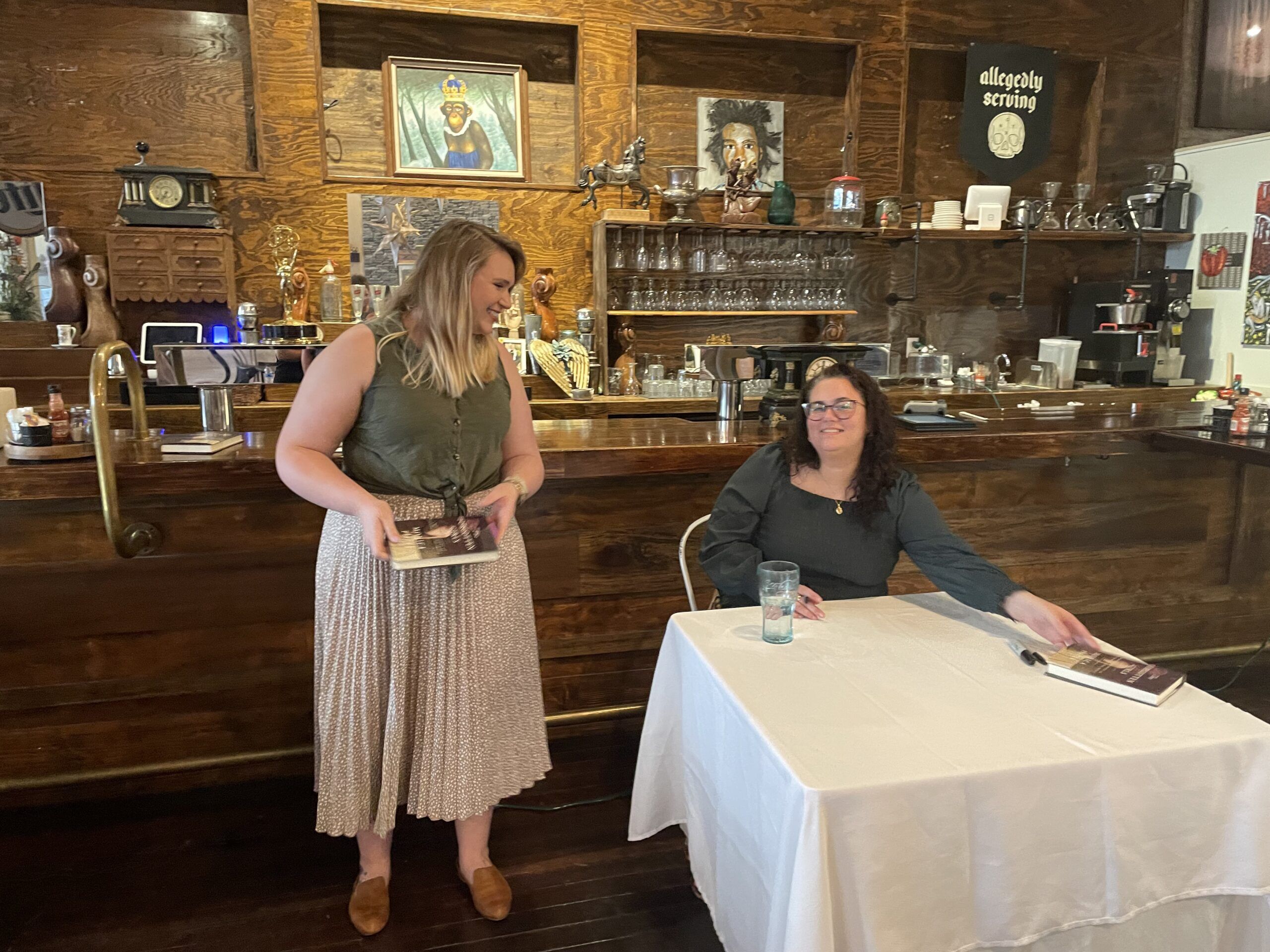Memoir explores challenges of rural life
Delta Digital News Service
By Avery Jones | Editor
July 1, 2023
JONESBORO, Ark. – Monica Potts was recently hosted at The Parsonage restaurant in downtown Jonesboro for a discussion and signing of her new book, “The Forgotten Girls”. The event was put together by Verb Bookstore on Saturday, July 1 at 6:30-8 p.m.
Potts is a senior political reporter for the website FiveThirtyEight and has also been published in The New York Times and The Atlantic among others. The book was published in April of this year and is Potts’s first novel.

It’s a memoir about her childhood in Clinton, Arkansas that discusses the obstacles that women in rural communities face. Potts addresses poverty, religion, drug addiction, early motherhood, abuse, mental health, and lack of education.
Potts’s interest in the subject started when she heard of these studies that showed middle-aged white women in rural communities were starting to die earlier due to “deaths of despair”–deaths caused by drug addiction and suicide.
Potts explores how these deaths are linked to the obstacles these women face in their communities, including the fact that many of these women only had high school degrees or less. It was shown in these studies that highly educated women generally live longer.
She saw these obstacles in her own community. Potts mainly writes about the life of her former best friend Darci, who unlike Potts, chose to stay in Clinton for all of her life and ended up struggling with drug addiction, early motherhood, poverty, and abuse.
When Sari Harlow, the owner of Verb and host of the event, asked the room who had cried while reading the book and how much of the issues in the book they had seen in their own lives and community, several hands went up.
“Those first couple chapters were painful,” Harlow said. “I told Monica before I had to put it down and just process for a while and then come back to it because it really hits close to home.”
Potts herself had a similar experience writing the book. She said that she would often take a break to drive around in the mountains for a while to gather her thoughts. However, she also felt like it was a necessary process to endure.
She moved back to Clinton in 2018. She was working on her book by that point, and she stated that this was part of her reason for moving back, but she also had a lot of unresolved feelings about her hometown.
Despite the issues that are explored in her book, Clinton will always be home for Potts. However, it also sometimes feels like living in a fishbowl to her because everyone knows everyone. She misses city life sometimes.
“I actually felt in some ways more isolated than in the city,” Potts said.
When she moved away from Clinton to go to college, however, she sometimes felt guilty that she didn’t stay in touch with people from home, including Darci. She also felt like she had opportunities that many others couldn’t take advantage of.
Potts attended Bryn Mawr College in Pennsylvania and chose anthropology as her major even though she knew she didn’t want to be an anthropologist. However, she wanted the flexibility that comes with a liberal arts degree.
Additionally, as a first-generation college student, she believes that a liberal arts style education is more supportive than that of a state school, where it’s easier to get lost and feel adrift when one is trying to figure out the unfamiliar system.
Going into college, Potts didn’t realize the vast amount of career options that existed. For her, the importance of college was discovering what she was able to do and learning skills that would translate to several careers.
“I just can’t imagine a life without having had that,” Potts said. “It was just about having a different kind of life experience for myself…”
It’s difficult to name an ultimate solution for the kind of systemic and cyclical issues that people in rural communities face, but Potts believes that more opportunities for young people is vital to their growth.
“Figuring out who you are and who you’re going to be is a really hard job. It’s just an incredibly time-consuming endeavor, and I think teenagers have a really hard time…” Potts said. “…I think that the more grace and the more opportunities we can give young people to figure that out with as much support and kindness as we can, the better off they’re going to be.”
Potts said that the benefit of writing her book as a memoir was to connect Darci back to herself and encapsulate the whole life of someone. As for solutions to the issues that Darci and people like her face, Potts thinks that any solution couldn’t be finite or discrete; it’s a never-ending problem that can’t just be “fixed,” but instead must be addressed at a systemic level.
When asked about advice for adults that want to “escape” their small towns, Potts said that one probably has a bigger network than one believes. That person should reach out to anyone they’ve connected to in the past that might have resources or know about resources to help.
After the discussion, Potts signed books for those who had brought their own or those who were buying. Verb Bookstore had set up a table displaying copies of Potts’s book available for purchase, as well as books by other Arkansas authors and some currently popular picks.
“When we heard about her book and that she was an Arkansas author, we felt like we really needed to bring her viewpoint here to Jonesboro,” Harlow said. “It was definitely one that resonated with me personally…so I felt it was important to make those connections.”
–30–
Avery Jones is a sophomore in the Department of English and Philosophy at Arkansas State University in Jonesboro. She can be reached at: [email protected]
Read more from the original source:
Author Monica Potts Book holds book signing for first novel. Article may or may not reflect the views of KLEK 102.5 FM or The Voice of Arkansas Minority Advocacy Council






Comments